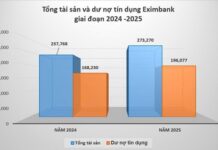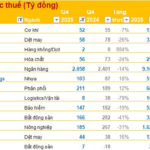
A comprehensive workshop on “How to Determine if a Bond is Expensive or Cheap”
On August 15th, FiinGroup, in collaboration with FiinRatings, hosted a workshop titled “How to Determine if a Bond is Expensive or Cheap.” The event aimed to share valuable insights on yield curves, bond default rates, and other comparative datasets, contributing to the development of a soft infrastructure for Vietnam’s corporate bond market.
Mr. Tran Phu Viet, Head of Research and Product Development at FiinGroup’s Financial Data Division, revealed that the total value of corporate bond issuances in the primary market from the beginning of the year to August 13, 2024, reached VND 240,000 billion, a 102% increase compared to the same period last year. This pushed the outstanding balance to VND 1,210,000 billion, approximately 11.7% of GDP in 2023.
FiinGroup’s experts commended the resurgence of bond issuances by enterprises as a positive development in the primary market.
In terms of issuance structure, bank bonds accounted for VND 136,500 billion, or 68% of the total value, while real estate bonds reached VND 43,200 billion, making up 21.54%.
The average nominal interest rate for the first eight months of 2024 was 7.47% per annum, a 0.66 percentage point decrease from the 2023 average of 8.13%. The average tenor stood at 3.8 years for the same period, shorter than the 2023 average of 4.7 years.
Mr. Viet commented, “The decline in bond interest rates is a positive sign, indicating that risks in the market are gradually diminishing.”
According to FiinGroup’s data, the outstanding balance of bonds (principal and interest) maturing in 2024 is VND 315,000 billion, while the peak in 2025 is expected to reach VND 334,000 billion. Specifically, for real estate bonds, the outstanding balance maturing in 2024 is currently VND 60,000 billion, and the estimate for 2025 is VND 135,000 billion.
Mr. Tran Phu Viet also noted a significant improvement in the default situation compared to the peak in 2023, especially for real estate bonds. This positive development is attributed to two main reasons: the improved financial health of issuing organizations and the proactive debt restructuring by investors and issuers.
Looking ahead, FiinGroup’s experts predict that bank bonds will continue to dominate the market, accounting for approximately 70% of issuances. Meanwhile, real estate bonds are showing signs of recovery, thanks to projects with better legal progress, and infrastructure bonds are also gaining traction.
“While interest rates remain low, many issuers are considering long-term bank loans or bond issuances to non-bank investors,” said Mr. Tran Phu Viet. “The market also anticipates supportive policies from the State Bank of Vietnam regarding licenses for banks to provide collateral management services.”
In their previously published research report, “Yield Curve and Bond Default History by Credit Rating,” FiinRatings observed that the spread between bank bond yields and deposit interest rates fluctuated between 2.0% and 2.5%, depending on the tenor.
With banks’ deposit interest rates currently at low levels, similar to those during the COVID-19 pandemic, bank bonds could offer investors, particularly institutional investors, higher yields than deposits, along with good liquidity and a diverse range of tenor and yield options.
Mr. Nguyen Quang Thuan, Chairman of FiinGroup, shared that Vietnamese investors are familiar with the concepts of “expensive” or “cheap,” “risk,” and “profit” when investing in stocks.
Mr. Thuan believes that the trading price of each corporate bond depends on multiple factors, with the fundamental one being the issuing company’s ability to repay the bond at maturity. To empower investors with more choices in the corporate bond market, FiinGroup recently published the report “Yield Curve and Bond Default History by Credit Rating.” This pioneering report provides valuable insights into these critical indicators in Vietnam’s bond market.
Mr. Ngo Dang Khoa (HSBC): Exchange rate under pressure in Q1, expected to stabilize around 24,400 dong/USD by end of 2024
Prior to the rising trend of the USD, Mr. Ngo Dang Khoa – Director of Foreign Exchange, Capital Markets and Securities Services, HSBC Vietnam, has shared some insights and forecasts regarding the upward momentum of the USD and exchange rates.

















